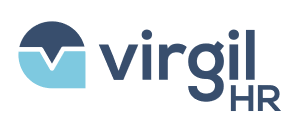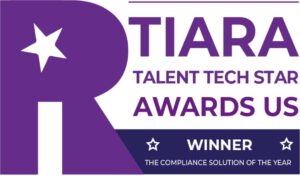Compliance in HR is non-negotiable. Your team risks paying hefty fines and suffering a bad reputation due to poor compliance management. Still, it’s a tricky area for HR teams to navigate.
According to data, businesses have been heavily investing in HR platforms to handle the challenges facing their human resources departments. By 2022, 46% of companies had implemented a software solution for compliance support, a steep rise from 20% in the previous year.
These platforms help human resources departments handle difficulties such as payroll, discrimination during the recruitment process, protections for staff that is substandard, and staying up to date with the ever-changing employment and labor laws.
Here’s what you need to know about the challenges your HR team faces and some of the best solutions you can implement to overcome them.
The Five Key HR Areas Affected by Compliance
HR is defining and implementing policies concerning current employment regulations and laws to stay compliant. The requirements you need to follow will depend on factors such as the organization size, your HR management processes, your industry, as well as the states you’re in.
There are specific state and federal labor laws that you need to follow:
Recruiting, Hiring, And Onboarding
Many local, state, and federal employment and labor laws ensure equal employment opportunities for job candidates. You must stay current with these laws to ensure legal compliance during the recruiting, hiring, and onboarding stages.
Worker Classification
According to most laws, each worker should typically be defined as an employee or contractor. Employees must be further classified as full or part-time and exempt or nonexempt.
HR Management
You must protect your employees from harassment in the workplace. There must be well-established and transparent procedures and policies that dictate the expected behavior of employees, with a detailed section on workplace harassment.
Employee Benefits Administration
Most employee benefits are optional to offer. However, there are a few mandatory ones, such as medical and family leave by state, health insurance by employer size, FICA, worker’s compensation insurance, and unemployment insurance.
You must always know what benefits are mandatory based on local, state, and federal laws.
Payroll and Timekeeping
Your workforce must be paid correctly. Local, state, and federal laws dictate employee pay terms such as overtime and minimum wage.
Top HR Compliance Challenges Faced by Most Organizations
There are many employment laws and regulations imposed on businesses. When hiring employees, you must abide by these regulations to avoid legal action.
Here are some of the most common issues that your HR team will most likely have to battle:
Shifts in Market Compliance
According to research, most U.S. companies are focused on international expansion. 87% believe expanding internationally is crucial for long-term growth.
However, expanding internationally or within local markets can bring significant difficulties. Every state and country has unique employment laws and regulations.
You must know how employment, payroll, business registration, and other laws work within your new market. Shifts and new trends in these markets make compliance even more complicated.
Poor Management of Payroll Compliance
Mismanaging payroll is a common problem in most businesses, with data showing that 54% of the American workforce suffers from pay slip issues. Most HR departments are ill-equipped to track payroll changes, with legislation varying from one state, region, and country.
For instance, the laws in Uruguay, Argentina, and Chile require employees to sign their payslips upon receipt.
Poor Access to Relevant Agencies and Entities
Most human resources teams lack access to the expertise and experience needed to get support for their compliance needs. This creates knowledge gaps that can harm the business and its staff.
Discrimination in Job Applications
The U.S. Equal Employment Opportunity Commission enforces various laws that make discrimination against employees and job candidates based on a protected class illegal. This includes religion, sex, color, race, age, national origin, disability, and genetic information. Most states have their own Civil Rights laws that impact the job application process as well.
Asking for the wrong information or making discriminatory hiring decisions can quickly put you at risk for discrimination lawsuits.
Poor Protection of Staff from Workplace Harassment
No company or enterprise is immune from workplace harassment. Many states have introduced laws with hefty penalties and mandated employee training, requiring businesses to implement anti-harassment policies.
However, few businesses are compliant since they’re not up-to-date with the new laws.
How You Can Overcome Most HR Compliance Challenges
Despite compliance challenges being overwhelming for most HR personnel, there are tried and tested ways you can overcome them:
Identify Gaps in Knowledge and Resources
Employment and labor laws will continually change. Therefore, it is your responsibility to assess and fill gaps in knowledge and resources by:
- Assessing existing internal compliance knowledge.
- Documenting gaps and prioritizing risks that must be addressed.
- Gauging the interest and enthusiasm among current stakeholders to fill in the gaps.
- Identifying the steps needed to ensure you have enough current knowledge and future coverage. This includes process automation, sourcing external expertise, and internal knowledge sharing and transfer.
Provide a Company Handbook
It’s hard to enforce laws and regulations if you don’t explain them. Therefore, each employee must have a company handbook describing the expected behavior, company values, and workforce policies.
The handbook should also detail performance evaluations, hiring and benefits, promotions, termination, and disciplinary procedures
Use Technology to Monitor and Evaluate Compliance
Implementing an HR compliance software solution that monitors employment and labor laws will help deal with challenges your HR team faces. This type of software helps track changes in local, state, and federal laws and suggests any new standards necessary to remain compliant.
Technology will encourage positive HR practices to ensure your team is on the right side of the law.
Onboard the Right Talent
This is perhaps one of the most obvious solutions to solve your compliant demurs, especially the ones surrounding workplace harassment. However, it’s important to do this while abiding by the Fair Labor Standards Act, as well as EEOand other multiple laws and regulations regarding onboarding. This will help avoid discrimination.
The practice of recruiting talent with zero ethical red flags will lead to fewer compliance issues.
Offer Regular Compliance Training
It’s equally important to regularly train employees on crucial compliance subjects such as diversity and sexual harassment. The training should be regular and linked to the company’s core values.
HR Compliance Should Not Be a Headache
Compliance will only be a struggle for your team if you don’t have the right tools to ensure employment and labor laws are followed. VirgilHR has the compliance solution for you. Contact us today to receive a free demo and learn more about how our software can help keep your HR team compliant.






